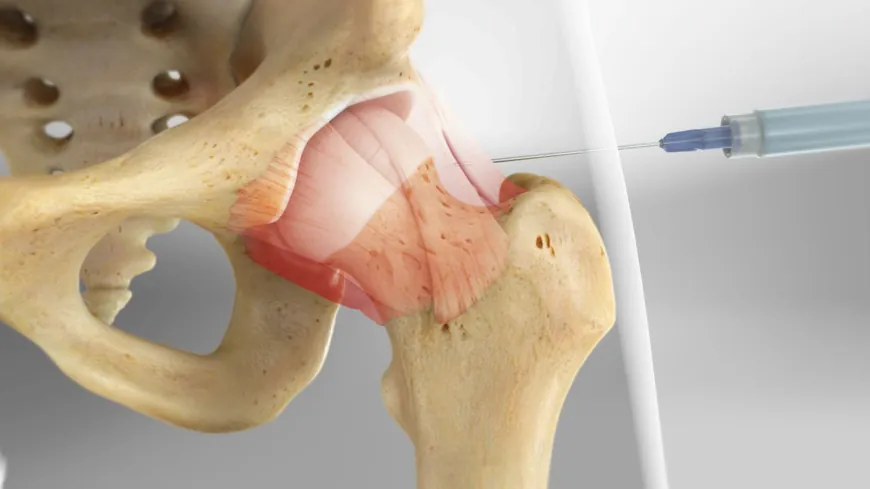Joint Pain Relief: How NPMC’s Treatment Options Can Help You
Joint Pain Relief

Joint pain can affect people of all ages and can be caused by a variety of conditions, including arthritis, injury, and inflammation. Whether it’s your knees, shoulders, hips, or hands, joint pain can limit your ability to move and impact your quality of life. At the Neurology and Pain Management Clinic (NPMC), Dr. Gautam Arora and his team offer a range of advanced treatments designed to provide relief from joint pain, restore mobility, and help patients get back to living their lives without discomfort.
Common Causes of Joint Pain
Joint pain can have many causes, including:
- Osteoarthritis: A common condition that occurs when the cartilage in the joints wears down over time, leading to pain and stiffness.
- Rheumatoid Arthritis: An autoimmune disorder where the immune system attacks the joints, causing inflammation, swelling, and pain.
- Injury or Trauma: Joint pain can result from injuries such as sprains, fractures, or damage to the ligaments and tendons.
- Tendonitis and Bursitis: Inflammation of the tendons or bursae (fluid-filled sacs near joints) can cause significant pain and restrict movement.
- Gout: A form of arthritis that occurs when uric acid builds up in the joints, causing sudden and intense pain.
NPMC’s Advanced Treatment Options for Joint Pain Relief
At NPMC, a variety of treatment options are available to address both the symptoms and underlying causes of joint pain. Dr. Gautam Arora tailors each treatment plan to the patient’s specific needs, helping them achieve long-lasting relief and improved joint function.
1. Corticosteroid Injections
Corticosteroid injections are a common and effective treatment for joint pain caused by conditions like arthritis and inflammation. These injections deliver powerful anti-inflammatory medication directly into the affected joint, reducing pain and swelling.
- How It Works: Corticosteroids work by suppressing the inflammatory response in the body. When injected into the joint, they provide targeted relief by reducing inflammation in the affected area.
- Benefits: Corticosteroid injections can offer quick relief from pain, with results lasting for several weeks to months. They are particularly effective for treating arthritis in the knees, hips, and shoulders.
2. Hyaluronic Acid Injections
For patients with osteoarthritis, hyaluronic acid injections may be recommended to improve joint function and reduce pain.
- How It Works: Hyaluronic acid is a substance naturally found in the joints that help lubricate and cushion them. In cases of osteoarthritis, the levels of hyaluronic acid may decrease, leading to joint stiffness and pain. Injections of hyaluronic acid can restore lubrication and improve mobility.
- Benefits: This treatment is especially beneficial for patients with knee osteoarthritis, as it can improve joint movement and reduce pain for several months.
3. Platelet-Rich Plasma (PRP) Therapy
PRP therapy is an advanced, regenerative treatment that uses a patient’s own blood to promote healing in the joints.
- How It Works: PRP involves drawing a small amount of the patient’s blood, processing it to concentrate the platelets, and then injecting it into the painful joint. Platelets are rich in growth factors that stimulate tissue repair and reduce inflammation.
- Benefits: PRP therapy is an excellent option for patients with joint injuries or early-stage arthritis. It can help repair damaged tissue, reduce inflammation, and improve joint function naturally.
4. Nerve Blocks and Radiofrequency Ablation
For patients with chronic joint pain, nerve blocks or radiofrequency ablation may be recommended. These treatments work by interrupting pain signals from reaching the brain, providing long-lasting relief.
- How It Works: Nerve blocks involve injecting a local anesthetic around the nerves responsible for transmitting pain signals. Radiofrequency ablation uses heat to damage the nerve fibers, blocking pain transmission for months.
- Benefits: Both treatments are minimally invasive and provide significant, long-lasting pain relief, particularly for conditions like osteoarthritis or chronic joint injuries.
Conclusion
Joint pain doesn’t have to limit your life. At NPMC, Dr. Gautam Arora and his team offer a variety of advanced treatments, from corticosteroid injections to PRP therapy, that can help alleviate pain and improve joint function. Whether your pain is due to arthritis, injury, or inflammation, NPMC provides personalized, effective solutions to help you find relief. If joint pain is affecting your ability to move and enjoy life, consult with NPMC to explore the best treatment options for your condition and start your journey toward a pain-free life.
What's Your Reaction?
 Like
0
Like
0
 Dislike
0
Dislike
0
 Love
0
Love
0
 Funny
0
Funny
0
 Angry
0
Angry
0
 Sad
0
Sad
0
 Wow
0
Wow
0























































